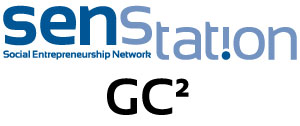The end customer is the dairy (product) consumer. We are bringing him benefits of steadi supply of good quality milk with safe bacterial content. Furthermore, in our plan the farmers joining our cooperative are firstly our suppliers, yet they also benefit from our plan. They will increase production and receive fair prices for steady demand of milk. Making them part of our strategic focus and bringing them benefits is what makes our plan sustainable.
MILK FOR INDIA
Select a deck
- d/ Affordable and Clean Energy
- d/ Clean Water and Sanitation
- d/ Climate Action
- d/ Decent Work and Economic Growth
- d/ Gender Equality
- d/ Good Health and Well-being
- d/ Industry, Innovation and Infrastructure
- d/ Life Below Water
- d/ Life on Land
- d/ No Poverty
- d/ Partnerships to achieve the Goal
- d/ Peace, Justice and Strong Institutions
- d/ Quality Education
- d/ Reduced Inequality
- d/ Responsible Consumption and Production
- d/ Sustainable Cities and Communities
- d/ Zero Hunger
MILK FOR INDIA
Category:
Agriculture/Farming
Theme:
Creating jobs at the Bottom of the Pyramid.
Deck:
Zero hunger; Sustainable cities and communities;
Event:
Global Social Business Competition 2012
Website:
www.kembe.nl
Team:
Lyubomira Dimitrova
Status:
Established

Research done by our own members and the Agnes Kunze society in August 2011 pointed out that there is a high need for milk in the Dehradun area. Dairy products are a major source of cheap and nutritious food to millions of people in India, where most people are vegetarian. Foremostly, since dairy products provide a solid source of protein. In Dehradun specifically there is a chronic shortage of milk. Currently, cows do not get proper inoculations and food and the quality of livestock is low. There are around 100 small sized, independently owned farms, holding 5 to 10 cows. Most farmers are producing milk for their own use and have little excess milk to sell. Furthermore, these farmers have no professional distribution network; resulting in any excess milk is sold to small middleman and traders. These offer no quality checks, low prices and unstable demand. Since their produce is of poor quality and low quantity, they have low bargaining power against milk-traders. Hence, the revenues and margins are low, which leaves them little opportunity to invest in expansion. Additionally, these farmers are mostly of the lower caste. This leaves them fairly inaccessible since they have grown distrust for authorities and outsiders.
Currently, the distribution of milk runs through middlemen. These are mostly neighbors or other locals who have their own farm as well. They collect the excess milk of other farmers, who do not have the means to transport the milk, and sell it in the city. Because the middleman is a farmer himself, the others can rely on the fact that he will show up daily to purchase the milk. Thus, even though they get paid very little at least they get some income for their excess milk. Subsequently, farmers are reluctant to switch to another buyer even if this means they get more revenue from their milk. Within the Dehradun area there is currently only one cooperative, which has been set up by an NGO. The goal of this cooperative is to control the whereabouts of gypsies since they are destroying the jungle. Once a day a truck collects the milk and sells it around the city at set times. Normal farmers cannot make use of this cooperative and still rely on middlemen.
- We add value to the customer and purchaser side through sampling the milk for bacteria and using the six milk-grading techniques. We will be able to offer the milk market a Quality Guarantee and clean milk with sufficiently low bacteria levels. This is currently not done by the middleman purchasing and reselling the milk on lower scale. Another unique selling point to the market for milk is our steady supply. We aim to have a solid number of farmers, which brings diversification benefits and consequently steady supply.
- Apart from the market side unique selling points, we also offer the farmers great value in the form of a steady demand for their milk. Also, we provide them with a 15% better price, from Rs. 26 to Rs. 30. Furthermore, unlike other buyers, we support the farmers by educating them about dairy farming. Through this, they are able to produce more efficiently and hygienically. This will benefit them, because they produce more, which increases their profits while still enjoying the security of a reliable buyer (us) once they are able to produce good milk.
- We aim to use direct marketing only, for both farmers and customers. We will directly approach all farmers, as well as marketplace milk sellers, (super)markets, schools and other potential customers to inform them about the benefits of working with us.
